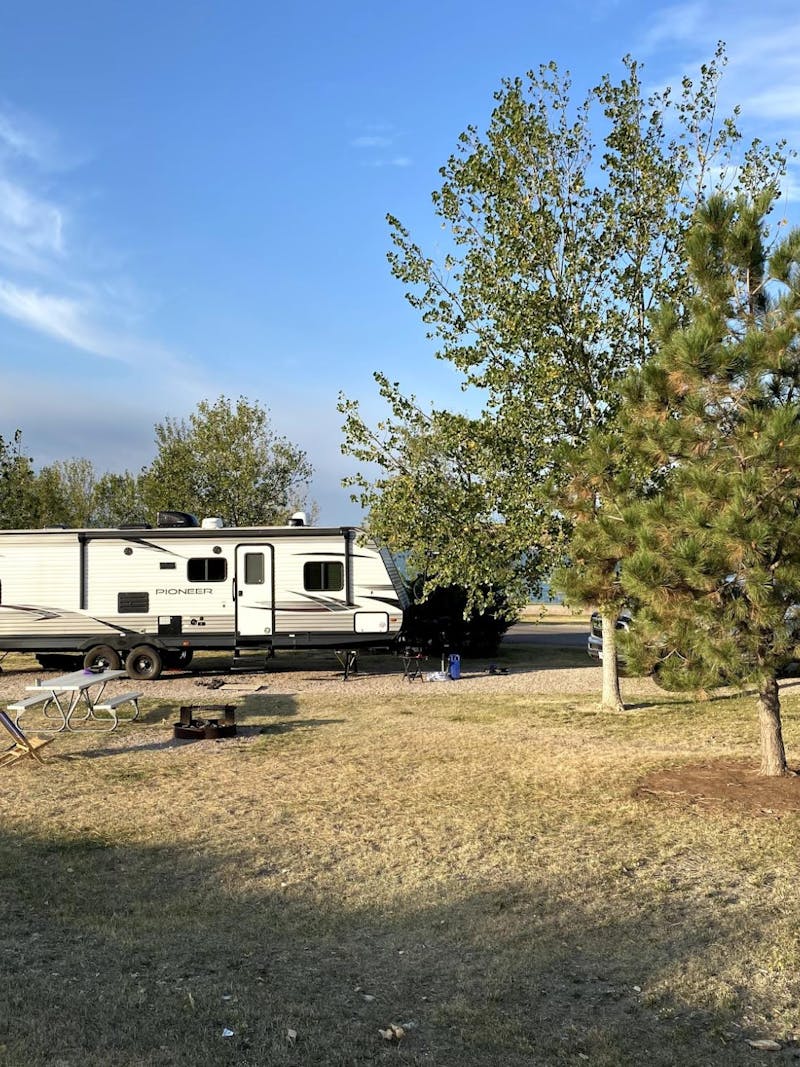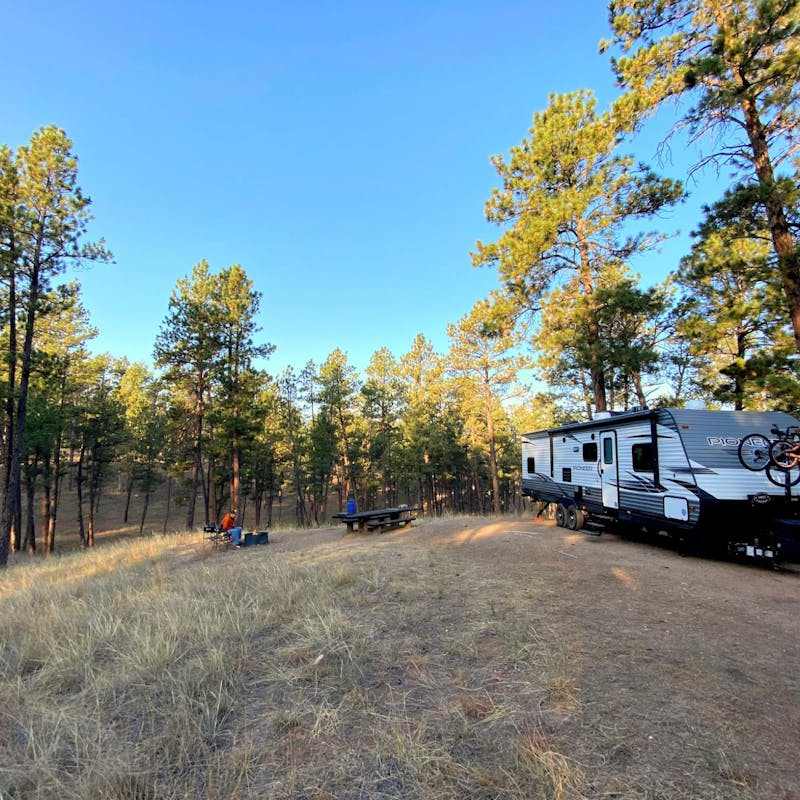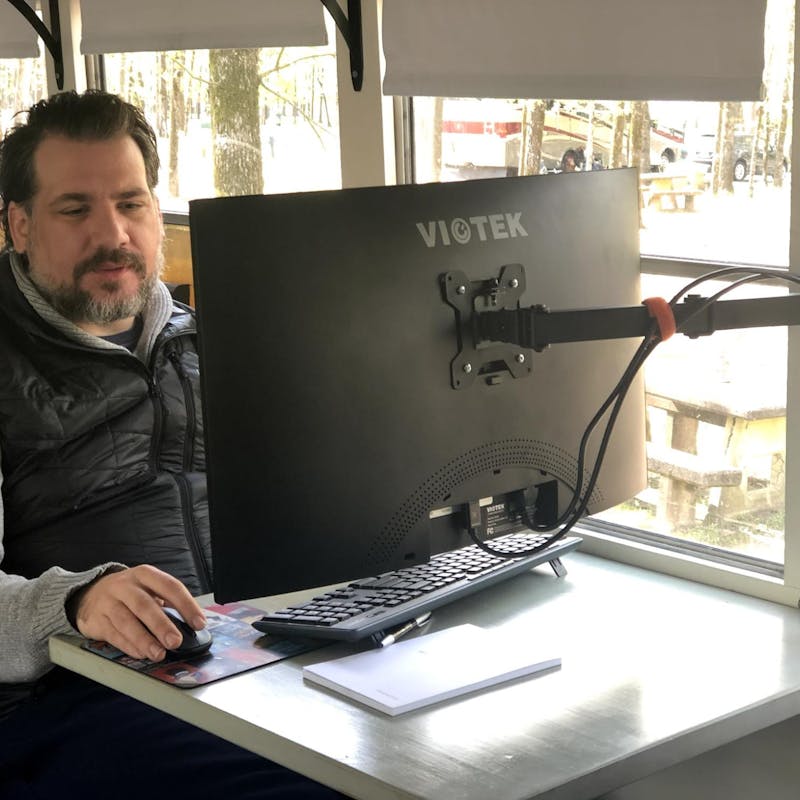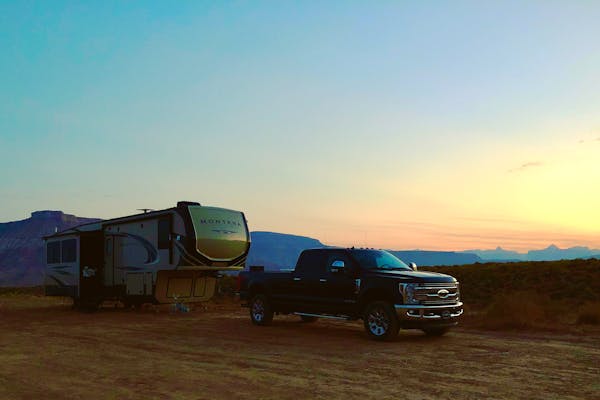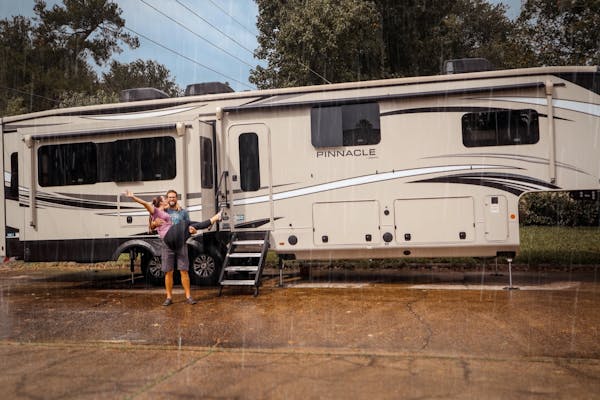Abby and her partner Jason have been traveling for almost five years and together they created the RV Miles Network. When she isn’t producing three weekly podcasts, curating content for their YouTube channel, or writing articles for RVMiles.com, Abby enjoys exploring national parks, finding the best local brews and soaking up as much time as possible with her three boys.
Featured RV: Heartland Pioneer Travel Trailer
